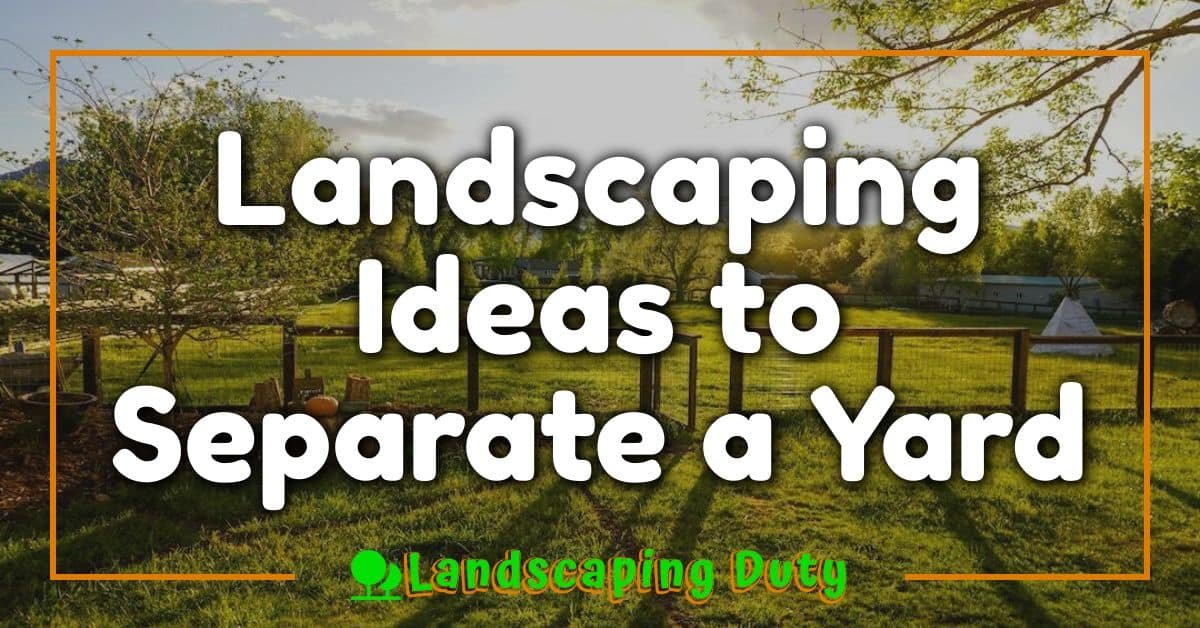If you’re thinking about starting a landscaping business, you’ll need to be aware of the various licenses and permits that may be required. Each state has its own licensing requirements, so it’s important to research the specific rules and regulations in your area. Failing to obtain the necessary licenses could result in fines, legal trouble, and damage to your reputation.


Understanding the licensing requirements for landscaping can be a challenge, but it’s an essential part of starting and running a successful business. Depending on your location, you may need to obtain a general business license, a landscaping contractor’s license, a pesticide applicator’s license, and other specialized permits. In addition to licensing, you’ll also need to have insurance and bonding in place to protect your business and your clients.
Key Takeaways:
- Research the specific licensing requirements for landscaping in your state.
- Obtain any necessary general business licenses, contractor’s licenses, pesticide applicator’s licenses, and other specialized permits.
- Make sure you have insurance and bonding in place to protect your business and your clients.
Understanding Landscaping Licensing
https://www.youtube.com/watch?v=tEBvPEWYb1M&embed=true
Starting a landscaping business can be an exciting venture, but it’s important to ensure that you have all the necessary licenses and permits in place before you begin operating. In this section, we’ll cover the key licensing requirements you need to know about to get started with your landscaping business.
Key Licensing Requirements
One of the most important licensing requirements for a landscaping business is a state license. The requirements for a state license vary depending on the state in which you operate. For instance, in Alabama, contractors in the landscaping industry are required to obtain a license and take an exam in order to obtain that license. The license is issued by the Alabama Department of Agriculture & Industries, Pesticide Management Division.
Another important licensing requirement is a business license. Even if your state does not require a landscaping license, you’ll probably need a business license before you can work on landscaping jobs. A business license is required to operate any type of business, including a landscaping business, and is issued by your local government.
The Importance of a Business License
A business license is important because it ensures that your business is operating legally and that you are complying with all the necessary regulations. It also helps protect you from liability in case of accidents or other incidents on the job. Additionally, having a business license can give your clients confidence in your professionalism and expertise.
To obtain a business license, you will need to fill out an application and pay a fee. The application will typically require you to provide basic information about your business, such as your business name, address, and type of business. You may also need to provide proof of insurance and other documentation, depending on your local regulations.
In summary, obtaining the necessary licenses and permits is essential for starting a successful landscaping business. Make sure you research the specific licensing requirements for your state and local area, and obtain all the necessary licenses and permits before you begin operating.
State-Specific Licensing Information
https://www.youtube.com/watch?v=4j0psRxDRsQ&embed=true
If you’re planning to start a landscaping business, you need to be aware of the different licensing requirements in each state. Here’s a breakdown of the state-specific licensing information you need to know.
Navigating State Regulations
Each state has its own set of regulations when it comes to licensing for landscaping businesses. For example, in California, you need a C-27 license, which covers landscaping and related services. In Oregon, you need a landscape contracting license, and in North Carolina, you need a landscape contractor license.
Connecticut requires a home improvement contractor registration, while Florida requires a landscape architect registration and a certified pest control operator license. In Georgia, you need a landscape architecture license, and in Alabama, you need a home builders license.
If you’re planning to operate in Alaska, you need to obtain a business license and register your business with the state. Arizona requires a contractor’s license for any job that costs more than $1,000, while Arkansas requires a contractor’s license for any job that costs more than $20,000.
Regional Variations in Licensing
It’s important to note that licensing requirements can vary even within a state. For example, in Colorado, some counties require a landscaping license, while others do not. Delaware requires a business license, but some cities and towns may require additional permits.
In Hawaii, you need to have a general contractor’s license if you’re going to be doing any construction work, including landscaping. In Idaho, you need a contractor’s license for any job that costs more than $2,000.
As you can see, the licensing requirements for landscaping businesses can vary widely depending on where you’re located. Make sure you research the specific requirements in your area and obtain all necessary licenses and permits before starting your business.
« How Landscaping is Both an Art and a Science Is Landscaping Part of Horticulture? Explained »
Starting Your Landscaping Business
https://www.youtube.com/watch?v=qsNkMXaTloY&embed=true
Starting a landscaping business can be a great way to turn your passion for gardening and outdoor work into a profitable enterprise. However, before you can start working on lawns and gardens, you’ll need to take care of some important business matters.
Creating a Business Plan
The first step in starting any business is to create a business plan. Your business plan should outline your goals, target market, and financial projections. You’ll also need to decide on a business entity, such as a corporation, sole proprietorship, LLC, or DBA.
Choosing a Business Entity
Choosing the right business entity is an important decision that will affect your taxes, liability, and other legal matters. A sole proprietorship is the simplest and most common type of business entity, but it offers no liability protection. A corporation provides the most protection from liability, but it is also the most complex and expensive to set up.
An LLC is a good choice for many small businesses because it offers the protection of a corporation with the simplicity of a sole proprietorship. Regardless of the entity you choose, you’ll need to obtain an Employer Identification Number (EIN) from the IRS and open a bank account for your business.
By following these steps, you can start your landscaping business on the right foot and set yourself up for success.
Insurance and Bonding for Landscapers
https://www.youtube.com/watch?v=Bhd06ijLBJ8&embed=true
As a landscaper, you might be required to have certain insurances and bonds in order to operate legally. In this section, we will discuss the most common types of insurance and bonds that landscapers need to consider.
General Liability and Other Insurances
General liability insurance is one of the most important types of insurance that you should consider as a landscaper. This type of insurance will protect you from claims related to property damage, bodily injury, and personal injury. It will cover the cost of legal fees, medical bills, and other expenses that may arise from these claims.
In addition to general liability insurance, you should also consider getting business insurance, workers’ compensation insurance, and commercial auto insurance. Business insurance will cover your business from losses due to theft, fire, and other disasters. Workers’ compensation insurance will cover your employees if they are injured on the job. Commercial auto insurance will cover your vehicles in case of an accident.
Understanding Surety Bonds
A surety bond is a type of bond that is required by some states and local governments in order to obtain a contractor license. This type of bond guarantees that you will comply with all laws and regulations related to your work. If you fail to comply with these laws and regulations, the bond will pay for any damages or losses that result.
There are different types of surety bonds that you might need to consider as a landscaper. For example, a contractor license surety bond is required in many states in order to obtain a contractor license. A performance bond guarantees that you will complete a project according to the terms of a contract. A payment bond guarantees that you will pay your subcontractors and suppliers.
In conclusion, obtaining the right insurance and bonds is essential for any landscaper. Make sure to research your state and local requirements to ensure that you are compliant with all laws and regulations.
Specialized Licenses and Certifications
https://www.youtube.com/watch?v=yjjeDnRk4c4&embed=true
If you plan to offer specialized services beyond basic landscaping maintenance, you may need to obtain additional licenses and certifications. In this section, we will discuss two of the most common specialized licenses and certifications for landscapers.
Pesticide Applicator License
If you plan to use pesticides in your landscaping business, you will need to obtain a pesticide applicator license. This license is required by law in most states and ensures that you are properly trained to handle and apply pesticides safely and effectively.
To obtain a pesticide applicator license, you will need to pass a written exam and demonstrate your knowledge of pesticide safety and application techniques. You may also need to complete a certain number of training hours or obtain specific certifications, depending on your state’s requirements.
Irrigation and Landscape Construction
If you plan to offer irrigation or landscape construction services, you may need to obtain a specialized license or certification. These licenses and certifications ensure that you have the necessary skills and knowledge to design and install irrigation systems and landscape features safely and effectively.
To obtain an irrigation or landscape construction license, you will need to pass a written exam and demonstrate your knowledge of irrigation and landscape construction techniques. You may also need to complete a certain number of training hours or obtain specific certifications, depending on your state’s requirements.
It’s important to note that licensing requirements for irrigation and landscape construction vary widely by state. Some states require a specific license for irrigation or landscape construction, while others may require a general landscaping or construction professional license. Be sure to check your state’s requirements carefully before offering these specialized services.
In summary, obtaining specialized licenses and certifications can help you expand your landscaping business and offer a wider range of services to your clients. By obtaining a pesticide applicator license and/or an irrigation or landscape construction license, you can ensure that you have the necessary skills and knowledge to offer these specialized services safely and effectively.
Educational and Experience Requirements
https://www.youtube.com/watch?v=iuGIAUatJrk&embed=true
If you want to become a licensed landscaper, you must meet certain educational and experience requirements. In this section, we’ll go over what you need to know about formal education, practical training, continuing education, and professional development.
Formal Education and Practical Training
To become a licensed landscaper, you’ll typically need to have a high school diploma or equivalent. However, some states may require additional education, such as a degree in horticulture or a related field. You may also need to complete a certain amount of practical experience, such as an apprenticeship or on-the-job training.
Continuing Education and Professional Development
Once you’ve obtained your license, it’s important to keep up with continuing education courses and professional development opportunities. This will help you stay up-to-date on the latest trends and best practices in the industry, as well as maintain your license.
Some states may require you to complete a certain number of continuing education courses each year to maintain your license. These courses may cover topics such as safety, environmental regulations, and new landscaping techniques.
In addition to continuing education courses, you may also want to consider joining a professional organization for landscapers. These organizations can provide you with networking opportunities, access to industry events, and other resources to help you grow your business and stay competitive.
Overall, becoming a licensed landscaper requires a combination of formal education, practical experience, and ongoing professional development. By meeting these requirements, you can build a successful career in this rewarding field.
Financial Considerations for Landscaping Businesses
https://www.youtube.com/watch?v=iO0rOYBnnVM&embed=true
Starting a landscaping business requires careful financial planning to ensure its success. In this section, we will discuss two important financial considerations for landscaping businesses: Setting up finances and budgeting, and understanding licensing and insurance costs.
Setting Up Finances and Budgeting
Before starting your landscaping business, you need to set up your finances to ensure that you have enough money to cover your expenses. You will need to create a budget that includes all of your expenses, such as equipment costs, employee wages, and advertising expenses. You should also consider the cost of licenses and permits required to operate your business.
To help you create a budget, you can use accounting software, such as QuickBooks or FreshBooks. These tools can help you track your expenses and income, create invoices, and generate financial reports. You can also use spreadsheets to create a budget, which can be a more affordable option.
Once you have created a budget, you need to stick to it. This will help you avoid overspending and ensure that you have enough money to cover your expenses.
Understanding Licensing and Insurance Costs
To operate a landscaping business, you will need to obtain licenses and permits from your state and local government. The licensing fees vary depending on your location and the type of license you need. For example, in California, the licensing fee for a landscape contractor is $300, and in New York, the fee is $100.
In addition to licensing fees, you will also need to purchase insurance to protect your business from liability claims. The cost of insurance varies depending on your location, the type of coverage you need, and the size of your business. For example, general liability insurance for a small landscaping business can cost between $400 and $700 per year.
To save money on licensing and insurance costs, you can shop around and compare prices from different providers. You can also consider joining a trade association, such as the National Association of Landscape Professionals, which can provide you with discounts on licensing and insurance costs.
In conclusion, setting up finances and budgeting, and understanding licensing and insurance costs are two important financial considerations for landscaping businesses. By carefully planning your finances and budget, and shopping around for the best licensing and insurance deals, you can ensure the success of your landscaping business.
Marketing and Expanding Your Landscaping Business
https://www.youtube.com/watch?v=wGXc8wnh6qY&embed=true
As a landscaping business owner, you need to market and expand your business to attract more clients and increase revenue. Here are a few tips to help you market and expand your landscaping business:
Building an Online Presence
Having a website for your landscaping business is essential for building an online presence. Your website should showcase your services, pricing, and contact information. Make sure your website is mobile-friendly and easy to navigate. You can also use social media platforms to promote your business. Share photos of your work, engage with your followers, and run ads to reach a wider audience.
Networking with Industry Professionals
Networking with industry professionals can help you expand your landscaping business. Joining the National Association of Landscape Professionals (NALP) is a great way to network with other professionals in the landscaping industry. Attend industry events, conferences, and trade shows to meet other professionals and learn about new trends and technologies in the industry.
By following these tips, you can market and expand your landscaping business and attract more clients. Remember to always provide high-quality services and excellent customer service to keep your clients happy and satisfied.
Compliance and Legal Considerations
https://www.youtube.com/watch?v=v6fsFQ9DFno&embed=true
Starting a landscaping business requires complying with legal requirements and regulations. You need to obtain the necessary licenses and permits to operate legally and avoid any legal issues. In this section, we will discuss some compliance and legal considerations that you should keep in mind while starting a landscaping business.
Permits and Local Government Interaction
When starting a landscaping business, you need to obtain permits from your city or county government. These permits vary depending on your location, but they typically include zoning permits, building permits, and business licenses. You may also need to obtain permits for soil use, drainage, and erosion control.
It is essential to interact with local government officials to ensure that you comply with all local regulations. You may need to attend meetings and obtain approvals from various departments, such as planning and zoning, environmental health, and public works. By doing so, you can avoid any legal issues and ensure that your business operates smoothly.
Managing Safety and Environmental Concerns
Landscaping involves working with heavy machinery, sharp tools, and chemicals, which can pose safety risks to your employees and clients. Therefore, you need to manage safety concerns by providing proper training, safety equipment, and protocols to your employees. You should also ensure that your employees follow safety guidelines and regulations while working on job sites.
Environmental concerns are also essential in landscaping. You need to ensure that your business follows ecological regulations, such as using sustainable practices and avoiding harmful chemicals. You should also consider the impact of your business on the environment, such as reducing waste and conserving water.
In summary, starting a landscaping business requires compliance with legal requirements and regulations. You need to obtain permits and interact with local government officials to ensure that you comply with all local regulations. You also need to manage safety and environmental concerns to ensure that your business operates smoothly and sustainably.
Services and Operations

When starting a landscaping business, it’s important to determine the scope of services you will offer. This includes deciding whether you will specialize in lawn care, tree care, landscape maintenance, or basic lawn care. You may also want to consider offering services such as irrigation systems, shrub care, and landscape planning.
Scope of Landscaping Services
If you plan to offer lawn care services, you will need to invest in equipment such as a lawn mower, edger, and trimmer. For tree care, you will need specialized equipment such as chainsaws and pruning shears. When offering landscape maintenance, you will need to have a variety of tools on hand, including shovels, rakes, and hedge trimmers.
In addition to equipment, you will need to have a good understanding of the plants and trees in the area where you will be working. This includes knowing how to properly care for different species, as well as being able to identify common pests and diseases.
Operational Equipment and Maintenance
When it comes to operational equipment, you will need to have a reliable vehicle to transport your equipment to job sites. You may also need to invest in a trailer or truck to haul larger items such as trees or rocks.
Maintenance of your equipment is also important. This includes regular cleaning and upkeep of your tools, as well as making sure that your vehicles are in good working order. It’s also important to keep up with any necessary repairs to prevent breakdowns during jobs.
Overall, offering a range of services and maintaining your equipment will help you provide quality service to your clients and build a successful landscaping business.
Frequently Asked Questions
https://www.youtube.com/watch?v=BhHqm6xRoeQ&embed=true
What are the general requirements for obtaining a landscape contractor license?
To obtain a landscape contractor license, you will need to meet the requirements set by your state’s licensing board. These requirements typically include completing a certain number of hours of education and training, passing an exam, and providing proof of insurance and bonding. Some states may also require you to have a certain amount of experience in the field before you can obtain a license.
How can I get a landscaping license in New York?
To get a landscaping license in New York, you will need to apply for a Home Improvement Contractor License from the New York Department of Consumer Affairs. This license is required for any business that performs home improvement work, including landscaping. To obtain the license, you will need to provide proof of insurance, bonding, and workers’ compensation coverage, as well as pass a background check and provide references.
Are there specific landscaping license requirements for states like Arizona and New Jersey?
Yes, there are specific landscaping license requirements for each state. In Arizona, for example, landscapers are not required to hold a state license, but they must check local licensing requirements before they begin work. In New Jersey, on the other hand, landscapers must obtain a Home Improvement Contractor Registration from the Division of Consumer Affairs.
Do I need a permit for landscaping work in California?
In some cases, you may need a permit for landscaping work in California. For example, if you are installing a new irrigation system or making major changes to the landscape, you may need to obtain a permit from your local government. It’s always a good idea to check with your local government to determine if any permits are required for your specific project.
What steps should I take to start a landscaping business in Washington state?
To start a landscaping business in Washington state, you will need to register your business with the Washington Secretary of State and obtain a business license from the Department of Revenue. You will also need to obtain any necessary permits and licenses from your local government, such as a Home Occupation Permit if you plan to operate your business from your home.
Is a license necessary for basic lawn care services like mowing in Oregon?
In Oregon, a license is not required for basic lawn care services like mowing. However, if you plan to offer more advanced landscaping services such as irrigation installation or tree trimming, you may need to obtain a Landscape Contractor License from the Oregon Landscape Contractors Board.
















